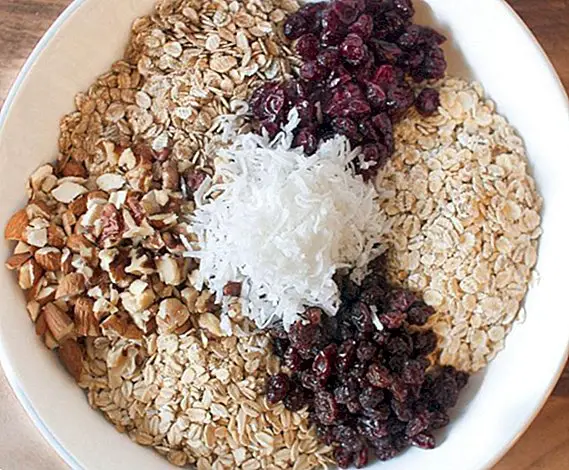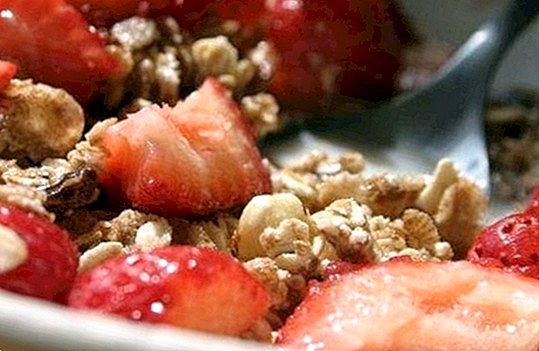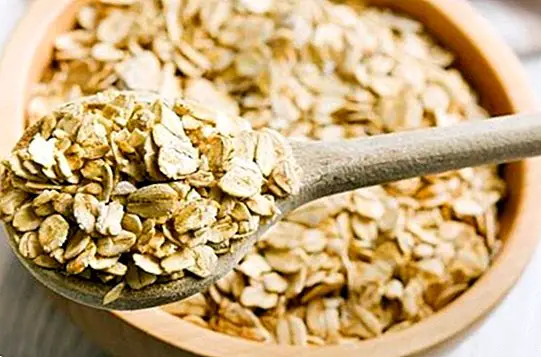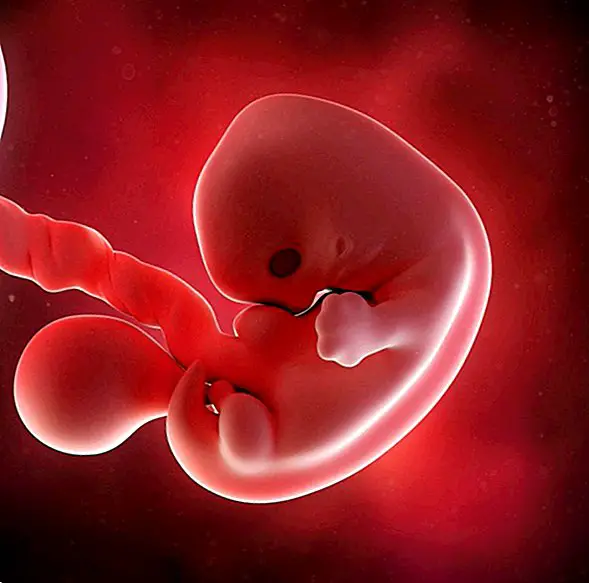Why it's good to eat fiber every day
Within a healthy, varied and balanced diet, there is no doubt that the fiber It becomes a nutritional component certainly essential, since opting for foods rich in fiber and ultimately to follow a diet rich in fiber helps prevent a very large diversity of disorders and diseases.
In fact, if we take a look at some of the main benefits of fiber, we realize that it is an essential component when it comes to preventing and reducing constipation, which in turn translates into preventing diverticulosis and hemorrhoids. It also helps to prevent the risk of colon cancer, and since it exerts a satiating effect, it is interesting when it comes to reducing appetite and losing weight or controlling weight.

Despite this, there are still few people who consume the amount of fiber recommended per day, or even simply do not eat any fiber throughout the day. In general, these people usually suffer from constipation and also have a higher risk of suffering some of the diseases and diseases that we mentioned in the previous paragraph.
Benefits of eating fiber every day
- Prevents constipation: considered one of the most common gastrointestinal problems, it is diagnosed when the person makes less than three stools per week, or when these are hard, dry and small, difficult to evacuate and painful. Fiber helps keep stools soft, so they are more easily moved through the colon.
- Reduces the risk of hemorrhoids: Hemorrhoids or piles are varicose veins that arise in the anal area due to excessive pressure in the pelvic and rectal areas, which causes inflammation and stretching. The piles are directly related to constipation, due to the difficulty to expel dry and hard stools.
- Reduces the risk of colon cancer: different scientific researches have verified the effect of the consumption of foods rich in fiber with the presence of colon cancer. These results have shown that the more fiber consumed, the lower the risk of presenting polyps (which are protuberances in the lining of the colon and that present mostly a benign onset, which is becoming cancer).
- Reduces and regulates blood cholesterol levels: regular consumption of fiber helps to avoid or reduce the levels of high cholesterol in the blood. While soluble fiber helps to trap the cholesterol that comes from the diet and helps its elimination from the body, the non-soluble fiber helps in the elimination of waste, stopping the absorption of cholesterol.
- Controls blood sugar levels: Regular consumption of fiber-rich foods helps prevent sudden increases in blood glucose. Especially noteworthy is soluble fiber, since slowing digestion and glucose absorption helps to reduce insulin production, having a beneficial effect on the control of blood glucose levels.
What is the recommended amount per day?
Many nutritionists agree that one recommended amount of fiber to consume every day is between 25 to 30 grams a day of fiber.
If we exceed this daily amount is likely to appear annoying symptoms, such as gas or flatulence, bloating and upset stomach.
Opt for the best fiber-rich foods
The following food groups stand out:
- Whole grains: they are natural products, rich in fiber that provide a feeling of fullness. In addition, they help prevent the absorption of toxic substances, preventing them from accumulating in our body.
- Vegetables: like whole grains, legumes are rich in fiber. In addition, they provide good quality vegetable proteins, as well as vitamins and minerals.

You can also pay attention to the following table of foods where we indicate which are the most fiber-rich foods, and their fiber content:
| Fiber content per 100 grams of food | |||
Food | Total Fiber | ||
| Artichoke | 4 | ||
| Almond | 10 | ||
| Dry pea | 17 | ||
| Fresh vetch | 4 | ||
| Blueberry | 5 | ||
| Cooked haricot | 9 | ||
| Celery | 4 | ||
| Hazelnut | 7 | ||
| Oats, flakes | 6 | ||
| Sweet potato | 8 | ||
| Barley | 10 | ||
| Rye | 13 | ||
| Plum, orejon | 9 | ||
| Damascus, orejon | 8 | ||
| peach | 2 | ||
| Endive | 2 | ||
| Spinach | 2 | ||
| Raspberry | 5 | ||
| Strawberry | 2 | ||
| Cooked chickpeas | 5 | ||
| Wheat Germ | 25 | ||
| Soya flour | 11 | ||
| Fig, ear | 10 | ||
| Kiwi | 4 | ||
| Lentils | 11 | ||
| Mango | 3 | ||
| Apple | 2 | ||
| Orange | 2 | ||
| Nut | 5 | ||
| Cucumber | 1 | ||
| Pear | 3 | ||
| Cooked lard beans | 7 | ||
| Leek | 2 | ||
| Beet | 3 | ||
| Cooked cabbage | 2 | ||
| Wheat bran | 43 | ||
| Sunflower seeds | 6 | ||
| Ground flaxseed | 39 | ||
| Sesame seeds | 11 | ||
| Soybeans, beans | 15 | ||
| Tomato | 2 | ||
| Grape | 2 | ||
| Carrot | 4 | ||
Beware of overdoing fiber consumption
It is very important to increase the consumption of fiber gradually, little by little, especially if you're not used to eating foods rich in fiber.
The reason is clear: if you increase it suddenly, in large quantities and for a short time, digestive discomfort can occur, such as abdominal cramps, bloating and intestinal gas.
If you have already suffered any of these symptoms do not worry, because as soon as the natural bacteria present in our digestive system get used to the increase of fiber in the diet, discomfort will disappear.
Images | Jacob This article is published for informational purposes only. You can not and should not replace the consultation with a Nutritionist. We advise you to consult your trusted Nutritionist. ThemesFiber



